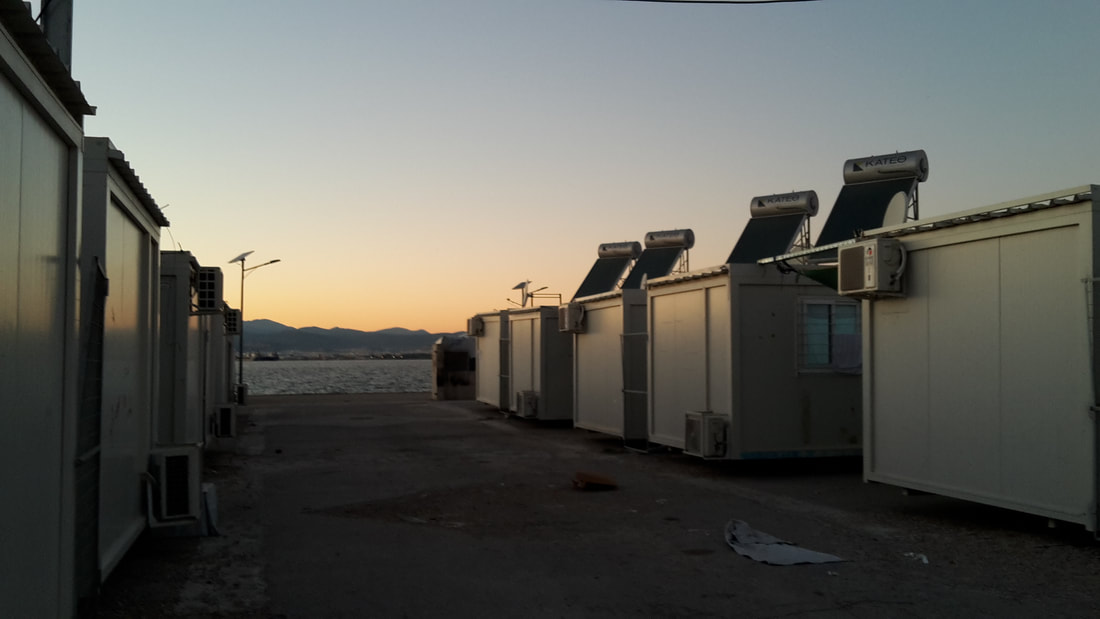|
It’s another beautiful winter’s day in Athens, home to around 660,000 Greeks and thousands of refugees - either in camps, disused buildings, or on the streets. While overcrowded conditions and limited resources in refugee camps on the islands are drawing attention to people suffering through yet another winter, refugees elsewhere in Greece nowadays receive a lot less attention.
No questions are asked when one enters the Skaramagas refugee camp, situated in an idyllic bay on a former navy base about an hour’s drive from the city center (see picture). Since refugees are no longer allowed to register, Greek camp officials have left and there is only minimal security, consisting of a handful of navy officers. While the Hellenic Red Cross takes on most visible refugee support roles, including health and laundry facilities, containers displaying the organizational signs of the UN Refugee Agency (UNHCR), Danish Refugee Council (DRC) and the International Rescue Committee (IRC) show who is ultimately responsible for overall management. In front of a colorful wooden building, a small group of volunteers are waiting for their coordinators. While the latter often spend more than three months in the camp, identifying priorities and dividing tasks, many volunteers join for two or three weeks, making use of their limited annual leave and holidays. Often unqualified and with limited experience abroad, they provide assistance where organizations have moved out due to increasing restrictions. While voluntourism is a recognized issue in developing countries, in this case the refugees would have no access to supporting services at all, had the volunteers had not decided to travel to Greece to assist. Besides managing a sewing room, mother-and-baby, and women’s space, refugees have the option to join sports, kids’ activities or language classes; most afternoons either English and/or German are taught. With many European borders firmly shut, and limited funding possibilities for the UN and NGOs to work with refugees in Greece, organizations founded and run by volunteers are becoming more professional. To improve sustainability, it will be necessary to take on (semi-) permanent paid staff, provide long-term volunteers with accommodation and transport, or start fundraising in the same pool as humanitarian agencies. Having argued in our previous blogpost for the need for an inclusive coordination mechanism, these trends should be enough reason for agencies to reach out and support formalizing volunteering in Greece. If not us, who? If not now, when? Comments are closed.
|
AuthorAll blog posts are authored by members of the Praxis Labs collective. All opinions expressed are the author's own. All rights remain with the author. Archives
July 2024
Categories |
